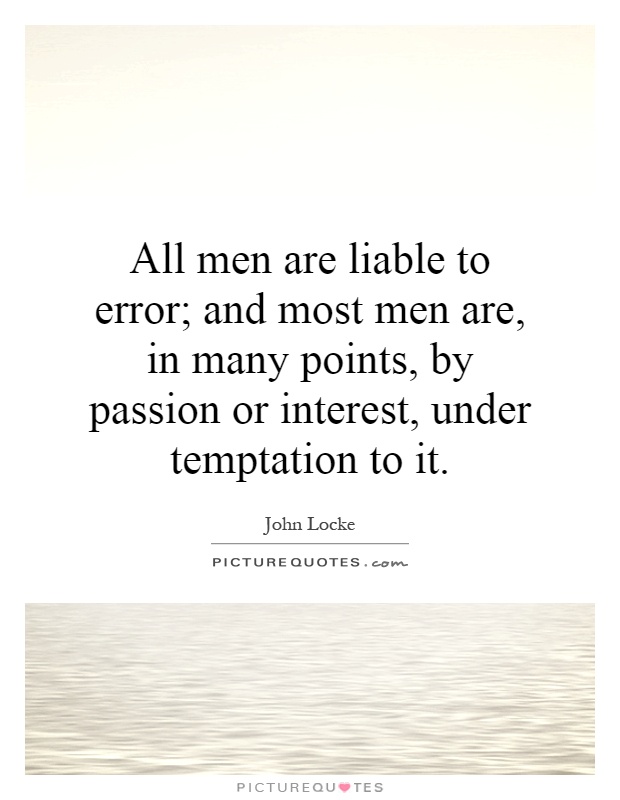All men are liable to error; and most men are, in many points, by passion or interest, under temptation to it

All men are liable to error; and most men are, in many points, by passion or interest, under temptation to it
John Locke, a prominent philosopher of the Enlightenment era, believed that all men are liable to error and are often tempted by passion or self-interest to make mistakes. In his works, Locke emphasized the importance of reason and rationality in guiding human behavior and decision-making. He argued that individuals should strive to overcome their biases and emotions in order to arrive at objective truths.Locke's assertion that all men are liable to error reflects his belief in the fallibility of human nature. He recognized that individuals are not infallible and are prone to making mistakes in their judgments and actions. This acknowledgment of human imperfection was a central tenet of Locke's philosophy, as he believed that individuals should be humble in their pursuit of knowledge and understanding.
Furthermore, Locke contended that most men are, in many points, under temptation to error due to their passions or self-interest. He recognized that individuals are often swayed by their emotions and desires, which can cloud their judgment and lead them astray. Locke believed that individuals should strive to overcome these temptations and base their decisions on reason and evidence rather than on personal biases or interests.












 Friendship Quotes
Friendship Quotes Love Quotes
Love Quotes Life Quotes
Life Quotes Funny Quotes
Funny Quotes Motivational Quotes
Motivational Quotes Inspirational Quotes
Inspirational Quotes